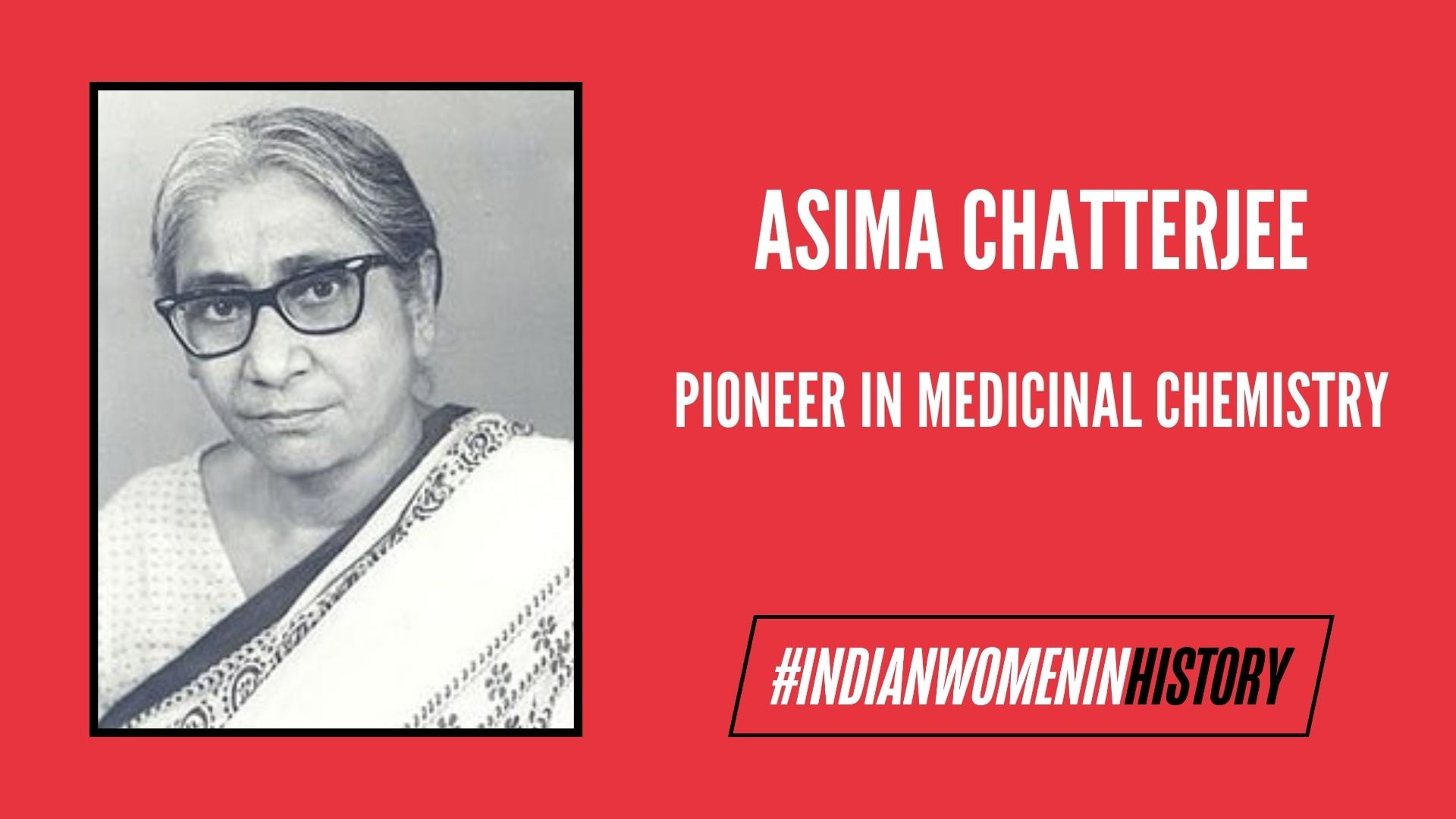Asima Chatterjee was an Indian Organic Chemist noted for her work in the field of Organic Chemistry. She is highly regarded in India for her pioneering work in medicinal chemistry. She was the first Indian woman to earn a Doctorate in Science.
Early Life and Education
Asima Chatterjee was born on 23rd September, 1917 in Calcutta, West Bengal. She was the eldest of the two children of a medical doctor, Indra Narayan Mukherjee and his wife, Kamala Devi. When Dr. Asima Chatterjee was growing up in Calcutta in the 1920s and 1930s, it was almost unheard of for a woman to study chemistry. She grew up in a middle class family and her family always encouraged her to get an education. She graduated with Honours in Chemistry from Scottish Church College of the University of Kolkata in 1936. Despite resistance from the society she got her Master’s degree in 1938. In 1940 she returned to the Kolkata University as the founding head of the Department of Chemistry at the Lady Brabourne College and in 1944 she became the first woman in India to earn a Doctorate in Science. Additionally, she had research experience from the University of Wisconsin, Madison and Caltech.
Career
Her Doctoral Research focused on the Chemistry of Plant Products and Synthetic Organic Chemistry. Chatterjee, like her father, exhibited an early interest in medicinal plants. Her research was largely concentrated on chemistry of natural products and resulted in anti convulsive and anti malaria and chemotherapy drugs and also authored a considerable amount of work on the medicinal plants of the Indian Sub-continent. According to the Indian Academy of Science, Chatterjee “successfully developed antiepileptic drug, Ayush-56 from Marsilia minuta and the antimalarial drug from Alstonia scholaris, Swrtia chirata, Picrorphiza kurroa and Ceasalpinna crista.” She also discovered anti epileptic activity in Marsilea minuta and antimalarial activity in the plants.
Her philosophy in life was imbibed with a very strong work ethic, she said, “I wish to work as long as I live”.
Her most popular achievements were the development of an epilepsy drug called Ayush 56 and several antimalarial drugs. Chatterjee’s contribution to science is spread across the whole realm of organic chemistry. She investigated the chemistry of almost all principal types of indole alkaloids. She contributed to the elucidation of the structure and stereochemistry of ajmalicine and sarpajine. She carried out synthetic studies on a number of complex indole, quinoline and isoquinoline alkaloids and also developed procedures for the preparation of beta-phenylethylamines in connection with alkaloid synthesis.
An outstanding contribution by Chatterjee was her work on vinca alkaloids which belong to Madagascar periwinkle plants. They are used in chemotherapy to help slow down the cancer cells from multiplying. In a tribute to Chatterjee, Shibnath Ghoshal writes that she started her career under the guidance of one of the pioneering natural product chemists in India, Professor Prafulla Kumar Bose. By degradative, spectroscopic and synthetic procedures, she unravelled the structure of plants and isolate a large number of natural products from many species of plants. Her philosophy in life was imbibed with a very strong work ethic, she said, “I wish to work as long as I live”.
She published around 400 papers in national and international journals and more than a score of review articles in reputed serial volumes. Her publications have been extensively cited and much of her work has been included in several textbooks. Universities from all over the world recognised Chatterjee’s groundbreaking contribution to medicine.
Chatterjee’s contribution to science is spread across the whole realm of organic chemistry.
Asima Chatterjee was a firm believer in collaborative teaching. She founded the Department of Chemistry at Lady Brabourne College. She also started a research institute and mentored many of India’s rising chemist scholars. She wrote Sarai Madhyamik Rasayan – a book in Bengali on Chemistry for secondary school students – on the request of Late Professor Satyendra Nath Bose. She had rewritten and edited Bharater Bonousadhi in English which was originally compiled by the late Dr KP Biswas – a treatise in Bengali on Indian Medicinal Plants in six volumes.
Awards and Achievements
Professor Asima Chatterjee was elected a fellow of National Institute of Sciences of India in 1960. She received Shanti Swaroop Bhatnagar Award for Chemistry in 1961 from CSIR for her valuable contributions in the field of Chemistry of Natural Products. She is the first woman scientist to be elected as the General President of the Indian Science Congress in 1975.
She was nominated by the President of India as a member of the Rajya Sabha from February 1982 to May 1990. She was given the Padma Bhushan by the Government of India in 1975. In the same year she was honoured by the Bengal Chamber of Commerce as the Woman of the Year for her contributions in science.
She was given the Padma Bhushan by the Government of India in 1975.
In an era where women were not even given the freedom to choose their career options, Dr. Asima Chatterjee fought against all odds to achieve her aim. Ms Chatterjee will always be remembered for her eloquent and powerful Presidential Address at the 62nd session of Indian Science Congress in 1975, Science and Technology in India: Present and Future reflecting her vision and foresight and her immense contribution to the field of medical and organic chemistry.
Also Read: Historic Indian Women In STEM We Don’t Know Of But Should
Featured Image Source: Wikipedia
About the author(s)
Shinjinee grew up in the culturally diverse environment of Banasthali University, Rajasthan and since then has stayed in different cities of India. A graduate in English Literature from Banaras Hindu University, Shinjinee is pursuing her Master's in Women's Studies from TISS, Hyderabad and also holds a Diploma in Mass Communication from BHU.




